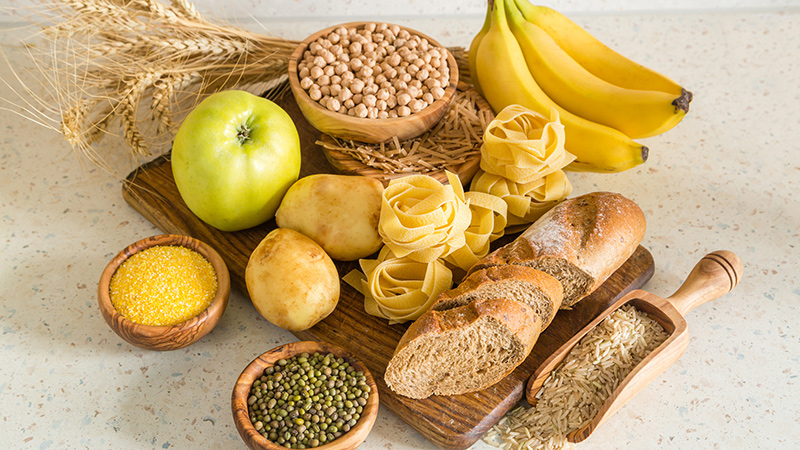When a person consumes a meal high in carbohydrate content, have you ever noticed how sleepy they become? Have you ever questioned why? Most of the effect comes from elevated blood sugar levels, this condition then makes us sleepy. Why do carbohydrates turn into sugar? Whenever you begin to break down carbohydrates, they turn into starch or cellulose.
The starches can be broken down into simple sugars called monosaccharides, or complex sugars called disaccharides. Our body uses these sugars for the production of energy. When we consume food, our body turns the food into some usable form of energy. The food may go through a couple of other processes before it reaches the energy stage. Since carbohydrates are starches before they are saccharides, if your body doesn’t need the energy, starch is a great storage vehicle for unnecessary glucose. Perhaps a simple explanation of the carbohydrate sugars and where we find them might help.
The sugars known as monosaccharides are glucose, galactose, and fructose. Glucose is the sugar produced by our bodies. Galactose is absorbed through our milk and yogurt consumption. Fructose is a sugar found in honey.
The sugars that are classified as disaccharides are sucrose, lactose, and maltose. Sucrose is common table sugar, lactose is the combination of glucose and galactose found in milk, and maltose is a product of starch digestion when combining glucose and glucose.
So what effect does this have on the body? Well, once you consume more sugar or starch or carbohydrates than you need, your body stores the excess as glycogen. The only people who actually benefit from excessive glycogen storage are marathon runners, who load up on carbs prior to a big race in order to be able to sustain extended period s of excessive exercise. Stored fat can become extreme, and your body reaches levels that classify you as morbidly obese. This is just such the case in America today. A vast majority of our population has reached obesity, and we are experiencing epidemic levels.
Over indulgence in carbohydrates therefore lends us to a tendency to become overweight. What happens in our bodies when we become overweight? Once our bodies are obese, many organs have trouble functioning, due to fat surrounding them, or simply the fact that we are too large for them to properly support.
Either way, too many carbohydrates leads to problems for our bodies. We can limit our intake of carbohydrates by consuming more fruits, vegetables, and lean meats. Less bread, rice, cereal, pasta, and grains lowers our intake of carbohydrates.
While all carbs break down into glucose, the best carbs for your health are the ones you’ll eat in their closest-to-nature state as possible: vegetables, fruit, pulses, legumes, unsweetened dairy products, and 100% whole grains, like brown rice, quinoa, wheat, and oats
The other option we have is to simply increase our daily physical activity. Carbohydrates as previously pointed out are the fuel producer for the body. If we want to rid ourselves of more carbohydrates, we simply need to pickup our daily activity. If you aren’t exercising, now would be a great time to start.
Responsible eating habits, proper nutrition and exercise, and an understanding of the foods you eat and what they contain that your body needs or doesn’t need is the basic building block for overall good health.







Be First to Comment